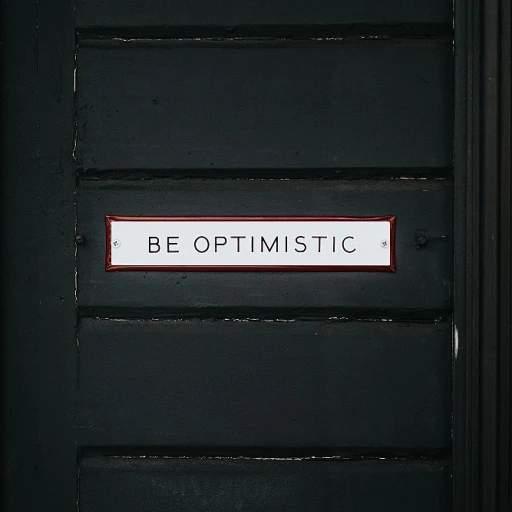
Understanding Auto Glass CRM
Mastering the Foundations of Auto Glass CRM
The auto glass industry has been rapidly evolving, necessitating innovative solutions to streamline operations and provide better services to customers. Auto Glass CRM systems play a pivotal role in achieving these objectives by organizing customer interactions and ensuring seamless communication across various channels such as automated email interfaces.
Auto Glass CRM solutions are specialized software designed to cater to the unique needs of businesses in the auto glass sector. They allow for the integration of data related to glass installations, repairs, and the management of customer relationships. This comprehensive approach enhances efficiency and ensures a high level of service delivery.
Key functionalities of Auto Glass CRM include VIN decoder features, which assist in accurately identifying vehicle specifications. This is particularly useful for glass types and ensures that distributors can provide precise matches, ultimately facilitating smoother and faster service. Furthermore, the CRM software often integrates with platforms like NAGS for pricing and parts information, allowing shops to read and access this data effortlessly.
A robust Auto Glass CRM enables glass shops to manage their business operations, including job scheduling, inventory management, and customer service, all from a single platform. This reduces manual workload and streamlines processes, leading to higher productivity and improved customer satisfaction.
With the integration of social media comments read from platforms like Facebook, Instagram, Twitter, and even YouTube videos, businesses gain valuable insights into customer preferences and feedback. This data can shape service strategies and improve overall engagement.
Auto Glass CRM solutions also come with a variety of subscription options, including free trials that let users explore features such as decoder search capabilities and PGW auto data integration. This ensures that businesses of all sizes can find a CRM solution suited to their specific needs, without overshooting budget constraints.
As the demand for streamlined operations continues to grow, auto glass businesses are embracing these software solutions to maintain a competitive edge. In the following parts of this article, we will dive deeper into the benefits these systems offer, the challenges faced during implementation, and how businesses have successfully utilized them to enhance their operations.
Key Benefits of Auto Glass CRM
Uncovering the Advantages of a Streamlined System
Adopting an auto glass CRM can significantly enhance business operations in a glass shop. This specialized glass software ties together various aspects ranging from customer management to logistics like decoder search and distribution. The CRM allows businesses to efficiently manage customer data including vehicle identification numbers with the integration of a vin decoder.
Several core benefits emanate from implementing such a system:
- Optimized Workflow: A CRM system streamlines processes by reducing duplicate tasks, allowing auto glass businesses to handle more jobs concurrently. This business optimization translates into reduced wait times for customers, enhancing satisfaction.
- Enhanced Customer Engagement: The software allows customers to receive updates on their orders and interact with businesses through comments read on platforms like Facebook and Instagram. This enhances the overall experience, building a loyal customer base.
- Improved Pricing Strategies: By incorporating tools like nags and aftermarket number pricing, the systems offer businesses a chance to refine their pricing models, staying competitive in the autoglasscrm market.
- Inventory Management: Auto glass CRM solutions often partner with distributors such as PGW auto glass, optimizing inventory management to ensure that the right windshield or glass component is in stock when needed.
- Data-Driven Decisions: The ability to accumulate and analyze customer data using social media channels like Twitter, YouTube, and Instagram supports informed business decisions.
These systems not only streamline processes within auto glass shops but also pave the way for growth, with many offering free trials or subscription options that can fit the needs of various businesses like a glove. While there are challenges in implementation, these glass vin technologies, whether through integrated software auto solutions or direct engagement platforms, present a tangible advantage for businesses seeking to refine their services and customer engagement strategies.
Challenges in Implementing Auto Glass CRM
Overcoming Hurdles in Implementation
Implementing Auto Glass CRM solutions can greatly enhance efficiency for businesses, yet challenges remain for those venturing into this digital transformation. Understanding these hurdles can pave the way for smoother adoption and better results. First and foremost, compatibility issues with existing systems can emerge, particularly if a glass shop relies on legacy software systems. The integration process might demand considerable effort and cost, which can be a deterrent for smaller businesses. Additionally, discrepancies in VIN decoder or database compatibility may result in inaccurate decoder search, leading to issues in managing aftermarket numbers or nags. Unlocking the value of efficient glass software requires meticulousness to ensure a seamless data transfer and compatibility. Furthermore, aligning the autoglassCRM with established business processes might pose a challenge. For instance, glass distributors with unique handling procedures or pricing models could struggle to adjust or tailor the software to their specific needs. The fear of potential disruptions in daily operations can create resistance among employees, slowing down the adoption process. Employee training is another significant hurdle. Familiarizing employees with new tech, be it understanding the intricacies of VIN or mastering the software, can demand time and resources. However, by initiating a free trial phase, businesses can allow customers to gradually adapt and provide valuable feedback on likes or comments read, be it on Twitter or customer feedback forums. Keeping channels open through platforms like Instagram and Facebook can facilitate a more informed workforce. Lastly, ensuring data privacy and control is paramount in the digital age. Adherence to data protection guidelines must be a priority, especially in cloud-based CRMs. Subscriptions and free options might offer different levels of data access and control, requiring businesses to carefully evaluate the most secure option for their customer databases. Addressing these challenges effectively can empower a business to fully leverage the potential of their Auto Glass CRM solution. For strategies on how enhanced workplace tech tools improve efficiency, visit our latest blog on enhancing workplace efficiency.Choosing the Right Auto Glass CRM
How to Select the Best Fit for Your Business Needs
When it comes to choosing an Auto Glass CRM for your business, there are several important factors to consider. A well-chosen CRM system not only enhances productivity but also integrates smoothly with your existing processes. Here's a guide to help you make an informed decision:
- Understand Your Business Requirements: Clearly define what you need from a CRM. Whether it’s a comprehensive solution for managing jobs and customers, or specific features like a vin decoder for accurate autoglasscrm operations, knowing your requirements is crucial.
- Evaluate Software Options: There are various glass software options available, ranging from those focusing on distributor integration to others offering advanced nags pricing insights. Look for software that aligns with your goals, be it through budgeting, pricing, or market analysis.
- Integration Capabilities: Ensure that the CRM can smoothly integrate with other systems and tools you use. Great CRM solutions, such as those offering vin decoder search capabilities, excel in easing business operations and comments read through streamlined processes.
- Evaluate Trial Versions: Many vendors offer a free trial period. Use this to explore features, such as pgw auto parts compatibility and windshield management. A hands-on approach will help you determine usability and suitability.
- Check User Reviews: Platforms like twitter, youtube, and others can provide customer feedback. Comments found in these reviews can highlight real user experiences and offer insights into the software auto effectiveness and customer support services.
- Consider Subscription Options: Auto Glass CRM systems often come with various subscription option plans. Whether you prefer a user month or annual model, ensure it fits within your financial plans without sacrificing critical functionalities.
By taking these factors into account, you can choose an Auto Glass CRM that not only enhances the efficiency of your glass shop but also strengthens customer relationships and streamlines business tasks.
Case Studies: Success Stories with Auto Glass CRM
Real-Life Examples of Successful Auto Glass CRM Implementations
For auto glass businesses seeking to enhance efficiency, the implementation of Auto Glass CRM software has proven to be a game changer. Let’s explore some real-world examples where the deployment of these CRM solutions led to remarkable outcomes.In one case, a well-known glass shop integrated an advanced Auto Glass CRM, which allowed the streamlining of their customer interactions and scheduling processes. With the help of a VIN decoder, the shop was able to quickly identify the correct windshield model for various vehicles, reducing the time spent on manual lookup. As a result, the glass distributor noticed a 20% improvement in their job turnaround time. Moreover, the shop used the software's highly praised prices comparison tool to ensure they offered competitive pricing, contributing to a significant increase in customer satisfaction.
Additionally, this tool's free trial period enabled businesses to understand its potential without upfront investment. This flexibility led several auto glass shops to seamlessly adopt and integrate the CRM into their existing systems. Compared to the initial challenges and comments read from other users, most found the trial period and subsequent onboarding process appreciatively user-friendly.
One distributor shared on platforms like Facebook and Twitter that after implementation, they experienced greater visibility into their customer relationship lifecycle. This insight provided by the CRM's analytics tools meant they were better equipped to make data-driven decisions. The helpful feature of responding to customer comments in real-time, whether from Instagram or other sources, was particularly useful for maintaining strong customer relations.
In another example, a shop reported leveraging the software's customer decoder search options. This enabled easy access to a customer’s service history, improving personalized service delivery. As a result, repeat customer visits increased, showcasing the CRM's effectiveness in building long-term business relationships.
Furthermore, the ability to skip content that wasn’t relevant and focus only on vital metrics allowed shops to manage tasks more efficiently. This feature was prominently commended in user reviews and highlighted on social platforms like YouTube.
These case studies clearly demonstrate the potential of Auto Glass CRM software to advance your business operations. By enhancing customer interactions and optimizing processes through effective tools and features, auto glass shops and distributors can reap measurable rewards.
Future Trends in Auto Glass CRM
Emerging Technologies Transforming Auto Glass CRM
The realm of auto glass CRM continues to evolve, adapting to new technological advancements. These technologies not only enhance efficiency but also pave the way for more personalized customer experiences.- Advanced VIN Decoders: Innovations in VIN decoder technology allow for more accurate and faster decoding capabilities. This enhancement helps glass software automatically populate necessary information and reduces the need for manual input, improving the overall operational workflow in glass shops.
- Integration with Social Media Platforms: Social media integration with platforms such as Facebook, Instagram, Twitter, and YouTube is becoming more prevalent. It allows customers to engage with auto glass services seamlessly, providing platforms for interaction, reviews, and feedback, which are crucial for business growth.
- AI-Driven Customer Insights: Artificial intelligence is progressively being integrated into autoglasscrm, providing deep insights into customer behavior. This helps in tailoring services according to customer preferences and ensures a high level of customer satisfaction. AI also aids in search and data analytics, assisting in better business decision-making.
- Subscription and Free Trial Models: Offering subscription options and free trials is a trend that allows businesses and customers to experience software auto solutions without the initial commitment. This approach is particularly beneficial in markets where customers are hesitant to switch existing glass software.
- Aftermarket Numbers and PGW Auto Integration: By integrating aftermarket numbers and PGW auto elements, CRMs streamline vendor interactions and pricing management. This ensures that glass distributors and shops receive competitive pricing and a streamlined supply chain process.
- Enhanced Reporting and Monitoring: Future trends also include advanced reporting and monitoring capabilities through software systems, which provide actionable insights and metrics crucial for business growth and operational efficiency.













